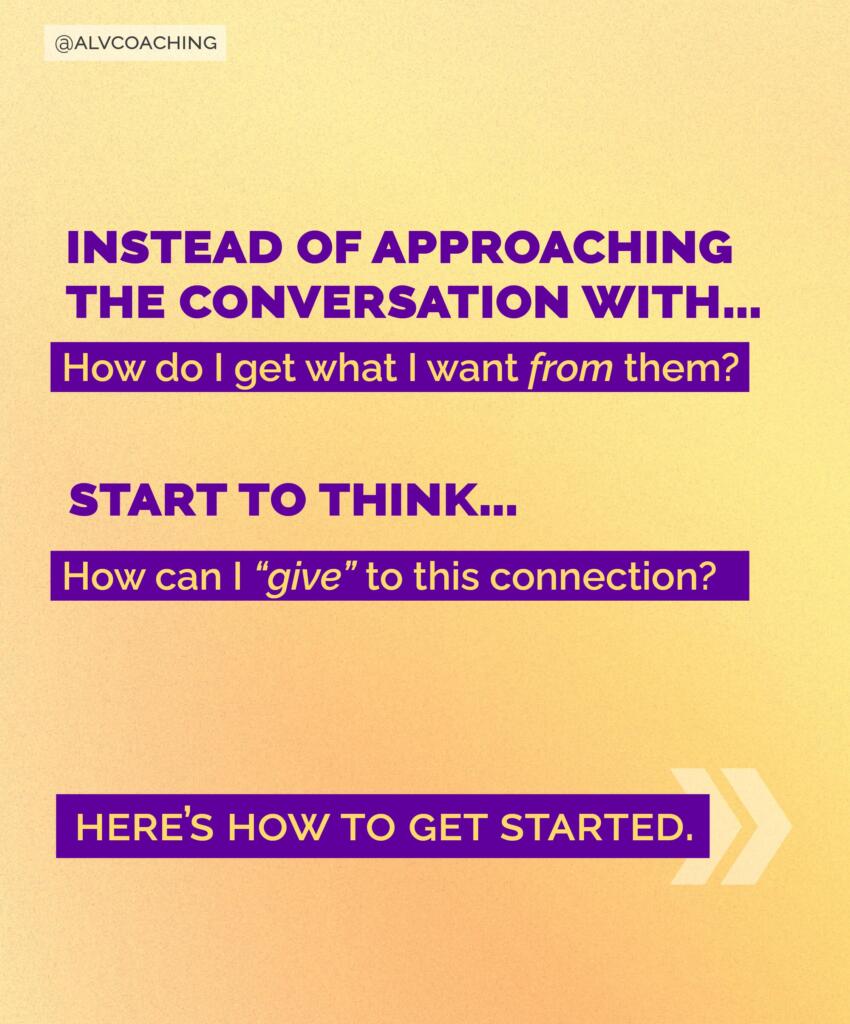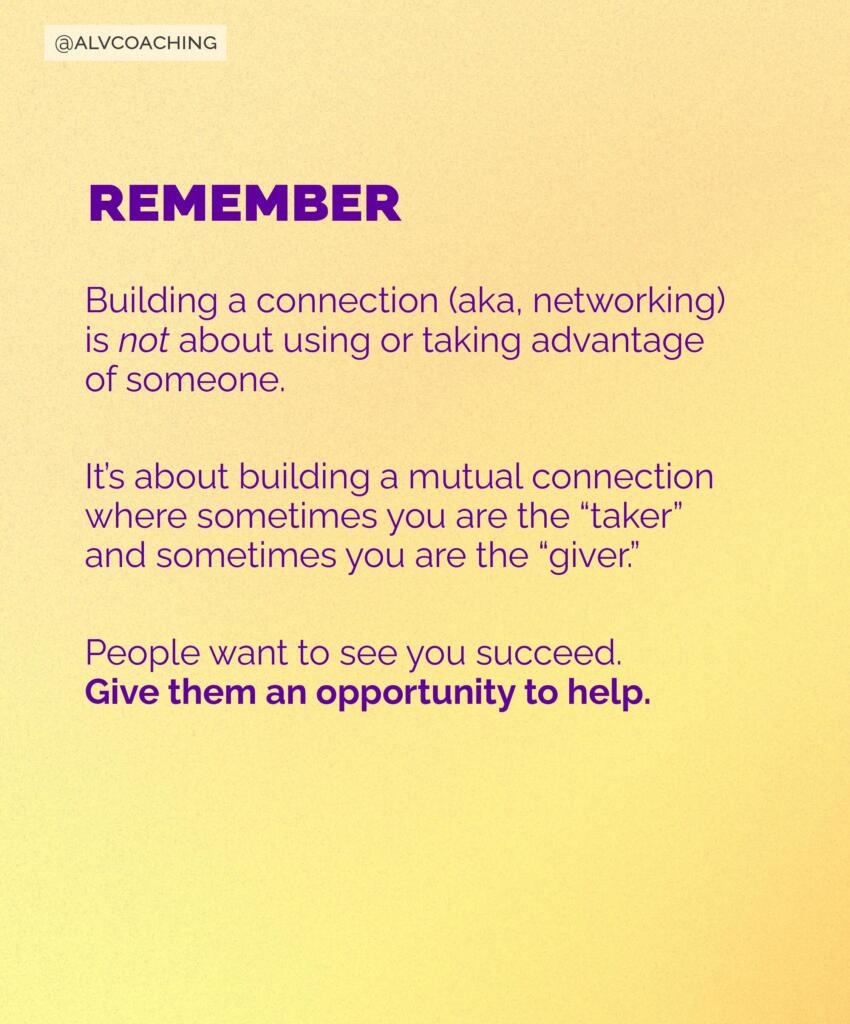Building Networking Skills for a Successful Career

Does the idea of working to develop strong networking skills make you feel uncomfortable?
Many people react to the idea of going to a networking event with as much enthusiasm as taking a test – a test that they don’t know how to study for.
And when you approach networking as if you’re a product that you’re trying to sell, it often leads to that cringe-y feeling of being a shameless self-promoter or a schmoozer.
Regardless of how you might feel about it, professional networking provides the opportunity to make authentic connections with people. And if those connections are good ones, they lead to business opportunities and shared success.
What if, instead of going to networking events with the intent to sell, you went to them with the intent to create connections that are based on mutual understanding and assistance?
An authentic approach to networking
This article isn’t about tricky techniques for building professional connections to shamelessly assist your job search or to weasel your way into relationships with companies you want as customers.
Yes, networking skills will help you reach your professional goals, but this goes far beyond that.
In this article, I’m going to challenge the way you think about professional networking so you can not just meet new contacts, but also build your confidence in networking situations, share your expertise, grow industry knowledge, and maybe even make some new friends.
What are networking skills?
Networking skills are communication skills, like being able to speak clearly and succinctly, being good at active listening, using and reading body language and facial expressions, and even navigating and making the most of social media.
But if you don’t know what the purpose of networking is, no amount of skill-building will help you get the most out of it.
Networking is, quite simply, the art of creating mutual understanding that enables the creation of mutual benefit. A complete list of networking skills includes knowing the logic behind what to ask and what to share.
How to improve your ability to network
Sometimes people measure their networking by how many business cards they collect or give away at local events. But if you don’t understand what’s important to the people you’re trading cards with, and if you don’t help other people understand what is important to you, you’re not really networking.

Networking is simple to learn but takes practice to master. The first step is to know what the “mission” of networking is.
There are three things at a minimum that you want to discover in any networking opportunity – and you want them to discover these things about you, too.
3 things to focus on when you meet people:
- What they are doing and how they do it.
- What obstacles or frustrations they experience when they do it.
- What outcomes they’re trying to achieve (or avoid!) as they do it.
It’s all about creating mutual understanding and finding shared interests. If you can answer these three questions about someone after talking to them, you know that you are doing well. And if the other person knows these things about you, then you’re on your way to mastery.
The foundation of building and maintaining relationships
Let’s say you’re networking and you meet someone who is, say, a manager for a local bank. As you make small talk you learn:
- They oversee the loan department, and they spend a lot of time training the loan officers to make good decisions about what types of loans they should offer to customers.
- They struggle with helping the loan officers make better decisions about what types of loans they make – the officers tend to just offer the same types of loans to everyone.
- If they could get the loan officers to make better decisions, the bank’s level of risk would go down and their profits would increase significantly.
After hearing this, you might think: “I know someone who does corporate training – maybe I could connect them.” Or maybe you do corporate training, and it’s an opportunity for you. Or maybe you have some advice and thoughts you could share from your unique perspective.
No matter what comes to mind, it will be better and more relevant to the other person if you’ve taken the time to understand them first.
By first understanding someone and only then trying to help them, you demonstrate your willingness to be of service – which makes a great impression and can be the beginning of a great relationship.
What are your personal networking goals?
When you network, you’re working to achieve mutual understanding and mutual benefit. You can prepare ahead of time by asking yourself:
- What am I trying to do and how am I trying to do it?
- What obstacles or frustrations am I experiencing as I do it?
- What outcomes am I trying to achieve (or avoid!) as I do it?
You might have more than one thing you’re trying to do, but for each thing you are trying to do (#1, above), be ready to talk about its corresponding #2 and #3.
And when you talk about these things, be clear and concise. An elevator pitch is approximately 30 seconds to two-and-a-half minutes. Ideally, have a 30-second version, and longer versions if people show more interest.
Develop authentic connections
When you think of networking as a way to “sell” people on who you are, you miss the opportunity to make an authentic connection. You might hesitate to share what you’re grappling with and what you are looking for. Being vulnerable isn’t part of a typical sales pitch.
But networking isn’t selling. It’s connecting. By sharing what you do, as well as your obstacles and aspirations, you give people the opportunity to trust you, understand you, and even to give you assistance, advice or introductions.
If you like to help people, don’t forget to be generous and give other people the chance to help you! After all, if you like to help others, don’t you think they might like to help you?
The Benjamin Franklin Effect
When someone does a favor for another person, they are more likely to feel positively towards the person they helped.
Benjamin Franklin once identified a rival legislator who he wanted to win over. Franklin asked if he could borrow a rare book from the legislator’s library. The legislator was flattered and sent the book immediately. Franklin returned it one week later with a thank-you note.
The surprising outcome was that this simple request for a favor led to a significant shift in their relationship. They became friends from that point forward. Franklin concluded that the man, having done him a favor, convinced himself that he must like Franklin after all, because why else would he have done him a favor in the first place?
By giving someone the opportunity to help you – even just by giving you advice or making an introduction for you – you can lay the foundation for a relationship. And, of course, it works both ways.
Setting goals to grow your networking skills
By knowing the “mission” of networking, you are ready to network anywhere and anytime. It’s not something you need to study for. You can do it right now.
Nearly everyone enjoys the opportunity to talk about what they do, and most people like to learn about others. So you’ll immediately be giving people something they enjoy.
And the more you network, the better you will get. As you read people’s body language and other reactions to what you say, you’ll have the opportunity to refine your questions, and to streamline and simplify how you describe your own situation.
You’ll get better at asking open-ended questions and listening carefully and thoughtfully to what the other person says. You’ll get better at not just waiting for them to finish talking so you can have a turn – something we all have been guilty of at some point.
You can use these approaches when you attend industry events or join professional associations to meet people to network with, but you can also do this with colleagues, acquaintances, and even with people you meet at social events.
Conclusion

When you understand the mission of networking as creating mutual understanding for mutual benefit, it gives you the key to a mindset shift.
Too often, people wait until they need a new job or their business is struggling to start building relationships. When you’re feeling desperate, it can be uncomfortable to build new relationships on that pretext. This is because your networking focus is on taking, not giving.
Instead of being something that you have to practice to get ready to do, it becomes something you can start doing now. If you can ask questions, you can start networking. And if you can start networking, you can start getting better at it. It’s all about practice.
And because you know the mission, you have a way to check your own progress and give yourself feedback. If you are learning about what people do, what they struggle with, and what they hope for, you know you’re networking. If you can’t answer those questions after meeting someone, you can do better next time, until you understand people you talk to, every time.
And by asking these questions, you’ll help others do the same – and they’ll understand you better as a result. Imagine a world where everyone understands everyone else better. You can not only help create that world, but you’ll get to live in it, too.
If you are looking for resources to help you practice the art of networking more mindfully, check out Mastering the Art of Effective Networking. And to really accelerate building your network, consider getting started with a career coach. Book a free consultation call here to learn more and get started.








